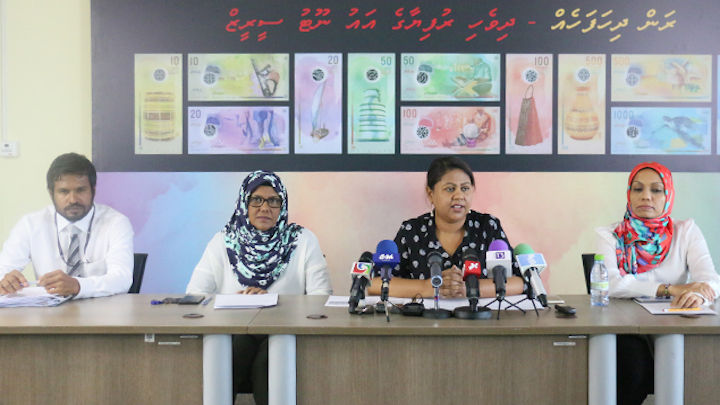Central bank takes over dollar sales amid shortage
The move comes after hundreds of Maldivians planning to travel during the school holiday season queued for hours outside the only Bank of Maldives branch in Malé that sold dollars. Eyewitnesses told the Maldives Independent that queue token numbers were sold for up to MVR500 last week.

19 Nov 2016, 09:00
The Maldives Monetary Authority has taken over the sale of US dollars to Maldivians planning to travel overseas, citing difficulties faced by banks to meet high demand during the school holiday season.
Dr Azeema Adam, the central bank’s governor, announced Saturday that the MMA will sell dollars from November 20 to January 7 exclusively to Maldivians who plan to travel within seven days.
The move comes after hundreds queued for hours outside the only Bank of Maldives branch in Malé that sold dollars. Eyewitnesses told the Maldives Independent that queue token numbers were sold for up to MVR500 (US$32) last week.
“There will be no need to queue before nine in the morning or to get in first. If you get into MMA before six, you will certainly get dollars that day,” Azeema assured at a press conference this morning, acknowledging anxiety among the public over the dollar shortage.
Become a member
Get full access to our archive and personalise your experience.
Already a member?
Discussion
No comments yet. Be the first to share your thoughts!
No comments yet. Be the first to join the conversation!
Join the Conversation
Sign in to share your thoughts under an alias and take part in the discussion. Independent journalism thrives on open, respectful debate — your voice matters.




